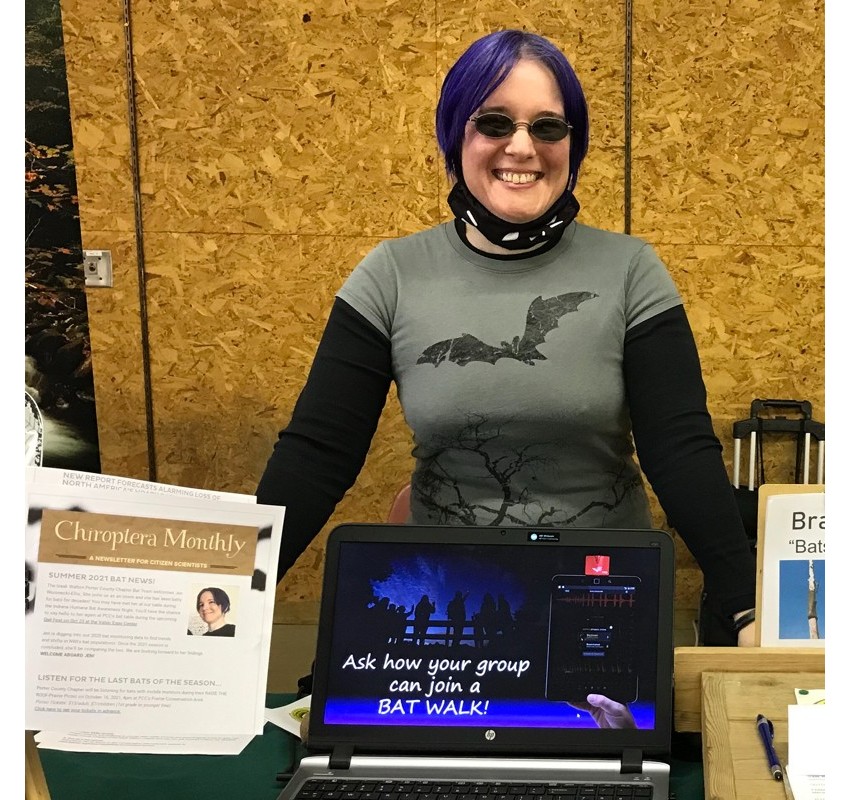Making Bat Friendly Habitats May Help Restore Numbers of Endangered Mosquito-Eaters
Miami University graduate student Jen Woronecki-Ellis of Hobart, Indiana, encourages backyard bat habitats...
Making Bat Friendly Habitats May Help Restore Numbers of Endangered Mosquito-Eaters
 Miami University graduate student Jen Woronecki-Ellis of Hobart, Indiana, encourages backyard bat habitats. Woronecki-Ellis’ guest column, "Making Bat Friendly Habitats May Help Restore Numbers of Endangered Mosquito-Eaters," appears in the Chicago Tribune. If you do not have a Tribune subscription, you can view the article here under its original title, “Why Should We Give a Guano About Little Brown Bats?
Miami University graduate student Jen Woronecki-Ellis of Hobart, Indiana, encourages backyard bat habitats. Woronecki-Ellis’ guest column, "Making Bat Friendly Habitats May Help Restore Numbers of Endangered Mosquito-Eaters," appears in the Chicago Tribune. If you do not have a Tribune subscription, you can view the article here under its original title, “Why Should We Give a Guano About Little Brown Bats?
Woronecki-Ellis is earning a Master of Arts (MA) in biology from Miami University through Project Dragonfly’s Advanced Inquiry Program (AIP) while working as a freelance consultant for Juniper’s NatureScaping, a company restoring endangered wildlife habitats one yard at a time. As an AIP student, Woronecki-Ellis takes web-based Miami courses and explores the Brookfield Zoo and natural areas around Chicago, Illinois. Woronecki-Ellis connects many of her master’s assignments into her work as a freelance consultant.
During her graduate research, Woronecki-Ellis created the “Good Bat Neighbor” citizen conservation programme with an interactive website that allows people to meet their local bats, take a “Bat-titude Survey”, and buy products to help bats, like the new Bat Garden native wildflower seed mix that she developed. The seed mix, which is available through her Juniper’s NatureScaping company, has already become popular with the public, and a portion of the proceeds goes to fight White Nose Syndrome that is endangering bats across the country.